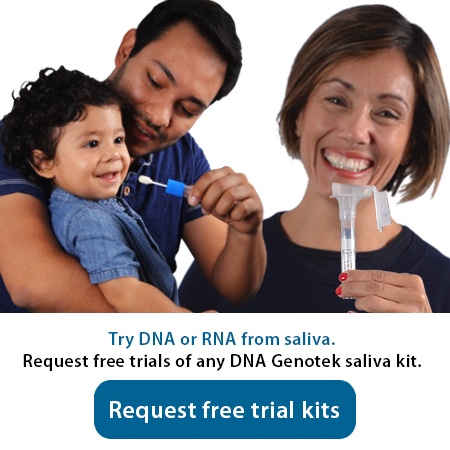2014-07-31
Obtaining DNA samples in sufficient numbers and in a timely manner can be a barrier to achieving statistical relevance for research studies. Maximizing recruitment means making sample collection easy and convenient for donors. Recently the Basser Research Center for BRCA at the University of Pennsylvania successfully used event-based collection to rapidly grow the number of participants in their research project.
Located within Penn Medicine's Abramson Cancer Center, The Basser Research Center for BRCA focuses exclusively on BRCA1 and BRCA2. The Basser Center is the first comprehensive BRCA-focused center of its kind with research initiatives ranging from the basic biology of BRCA-related cancers to communication of BRCA test results within families. The center has a broad mission:
To use cutting edge research in basic and clinical sciences to advance the care of individuals living with BRCA1 and BRCA2 mutations.
One of the Basser Research Center’s research projects titled Identification and analysis of families with genetic susceptibility to cancer looks to recruit participants who are mutation positive for BRCA1 or BRCA2, negative for a BRCA1 or BRCA2 mutation with significant family history, or have a BRCA1 or BRCA2 variant of uncertain significance, among other criteria.
Identification and analysis of families with genetic susceptibility to cancer
To reach potential research participants who meet the required profile, the Basser Research Center partnered with FORCE (Facing Our Risk of Cancer Empowered), an organization dedicated to improving the lives of individuals and families affected by hereditary breast and ovarian cancer. FORCE holds an annual conference designed by and for people and families affected by hereditary cancer or a BRCA mutation. Through this partnership, the Basser Center had access to over 750 conference attendees at the June, 2014 event who would meet the requirements to participate in the research study. The challenge was how to get as many event participants as possible to sign up for the research project, complete the required consent form and health questionnaire, and provide a DNA saliva sample on site.

The exhibit and collection event was organized by Rebecca Mueller, MS, CGC, CCRC Genetic Counsellor and Outreach Coordinator at the Basser Center. Rebecca and the team recruited participants and collected DNA saliva samples at the FORCE annual conference in 2012 but were hoping to increase their recruitment at the 2014 event. The creation of a unique brand for the collection event was one key strategy in improving the recruitment numbers. The branding for the event was reflected on all the promotion materials used at the conference including a postcard inserted in the attendees bags promoting the study, directional signage to the collection area, banner stands to draw attention to the study in the exhibition area, t-shirts for staff and new study recruits, and privacy screens for those wanting to provide their DNA saliva sample in private.
On opening day, the Basser team dressed in their bright pink t-shirts, unfurled banners and positioned signs directing people to the two DNA saliva sample collection sites. It quickly became obvious that attendees were immediately engaged and very enthusiastic to participate in the study.
The majority of conference attendees that enquired about the research project were enthusiastic about the opportunity to contribute to the research being conducted and fascinated with the unique and simple sample collection method – providing a saliva sample versus a blood sample. Although privacy screens were provided, many participants could be found in the sitting areas of the conference or standing in groups marvelling at the approach to DNA collection. Most were amused by the fact that most of their lives they would have been reprimanded for spitting and here they are now contributing to potential life saving research through this practice.
The 2014 event was very successful for the Basser research team. The number of people recruited to the study increased by approximately 200% with nearly 40% of all conference attendees signing up for the research study. Participant samples will enable further research into the understanding of genetic risk for cancer, the biology of BRCA1/2 cancers to improve diagnosis and treatment, and using new technologies to discover novel therapeutic strategies.
We were so pleased to help this great group of researchers with this project and wish them the best of luck with their study.


